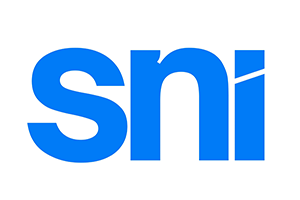
Established in 2006, SNI boasts 100+ employees across Europe, offering end-to-end tax technology provider solutions to 750+ clients, with 70% being multinational. Our solutions are globally utilized, providing versatile implementation options for efficiency.
SNI safeguards businesses against risks of tax compliance while digitization transforms the tax system functions around the world. We provide end-to-end solutions, implemented either on-premise, through the cloud, or as a hybrid. The service we give includes the implementation and long-term support including regulatory updates for an existing function. We are helping them to save time, cut costs, and reduce risk.
Solution Overview
Simplicity: SNI streamlines invoice data extraction, formatting it as XML files. Progress can be tracked through SNI’s e-Invoice Cockpit. Validated data is submitted to tax authorities via an SNI Connector, and then forwarded to partners upon successful validation.
Reliability: SNI add-ons are SAP-certified for seamless operation across most versions, eliminating the need for system upgrades. Easily integrated solutions are optimized for existing systems. As a Silver Partner of SAP, SNI has over a decade of expertise supporting various ERPs.
Efficiency: SNI’s end-to-end e-invoicing solution offers global flexibility, available on-premise, through the cloud, or in a hybrid model, easily scalable for efficiency.
In the e-invoicing model, invoice information is directly transmitted to tax authorities for validation before reaching the recipient. Files are expressed using XML and contain all invoice details.
Businesses extract relevant invoice data, format it as XML files, submit them to tax authorities for assessment, and once validated, transmit them to recipients. With real-time e-invoicing, data is sent to the government immediately after preparation. Automation reduces administrative burdens for users of SNI Add-ons. SNI e-invoicing and real-time e-invoicing solutions meet reporting requirements for each invoice. This obligation currently applies in approximately 20 countries worldwide.
